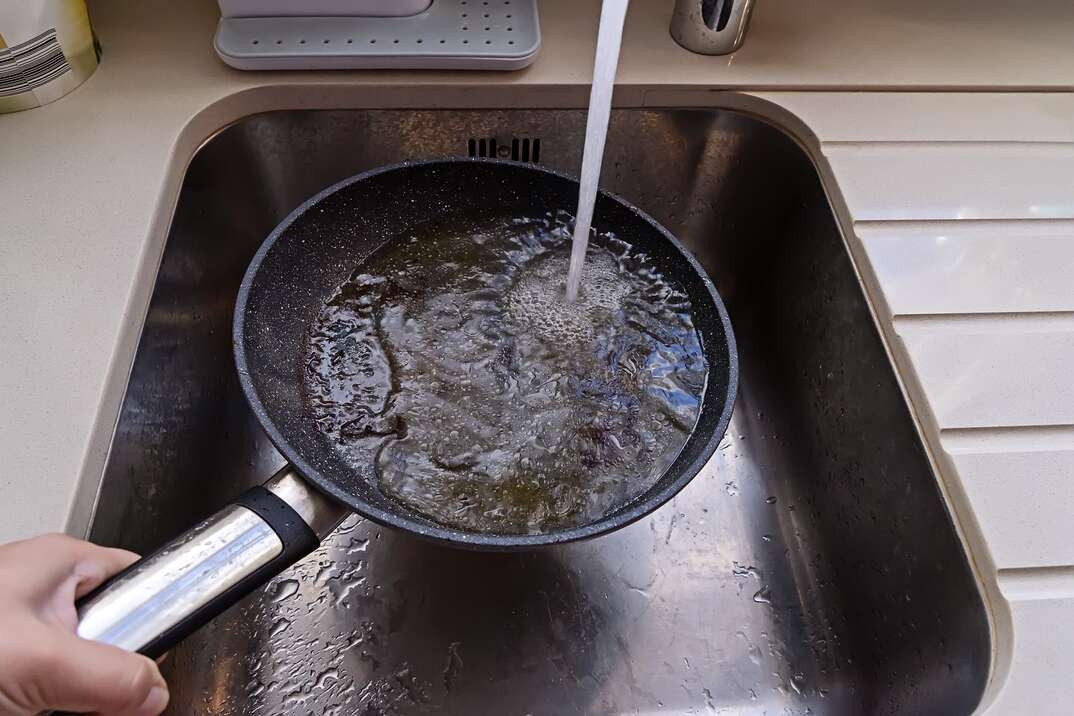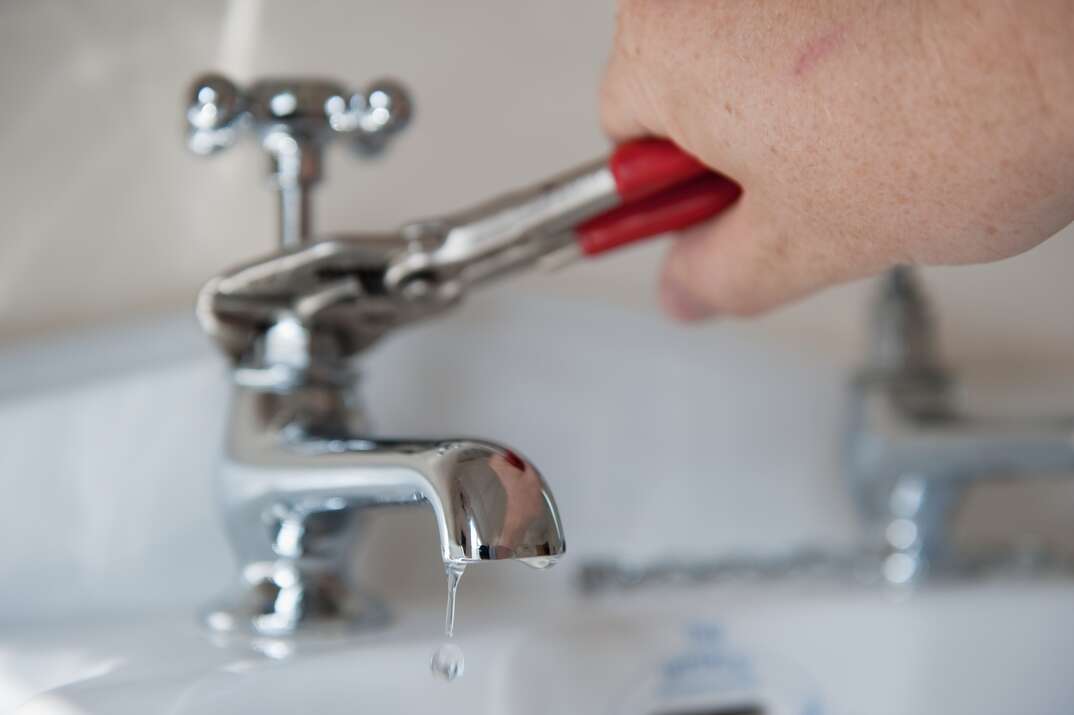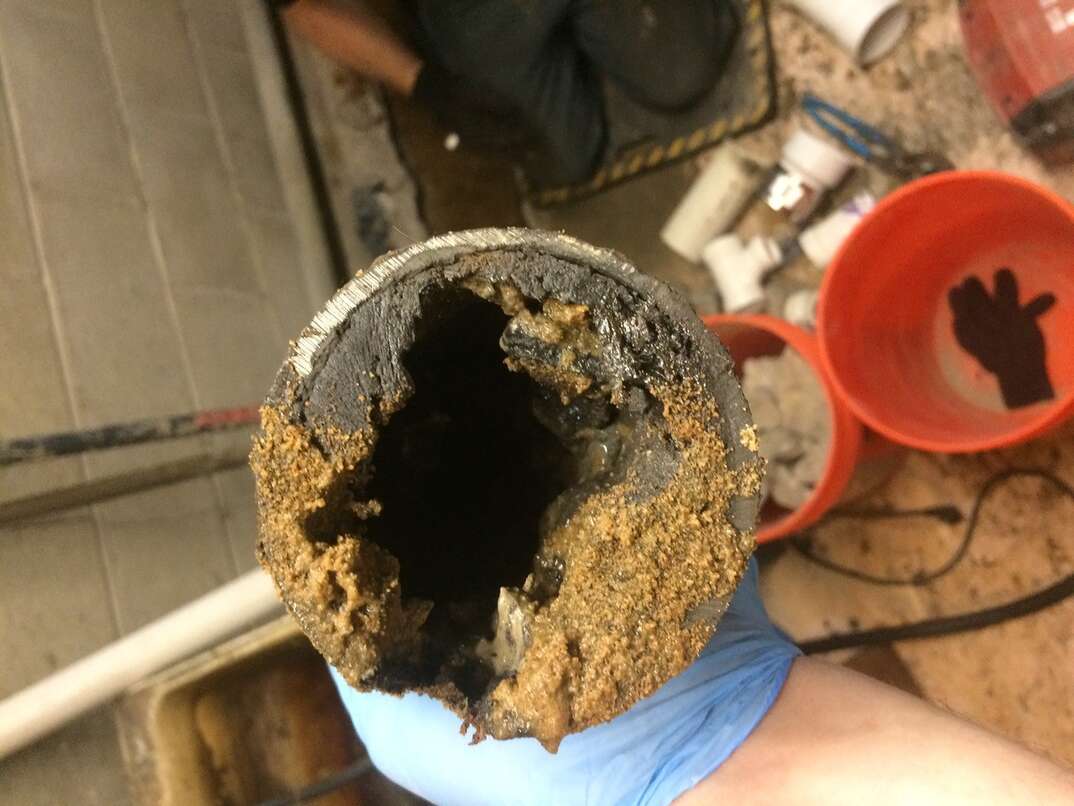Can You Pour Cooking Grease Down the Drain? No. Here's Why

Your kitchen sink drain is where unwanted liquids go — dirty dishwater, expired milk and that cup of coffee you made but forgot to drink. Cooking oils and liquid grease seem to fit into this category. However, dumping that stuff down the drain is a great way to get a greasy blockage in your pipes.
This May Also Interest You: Snake’s in a Drain! How to Unclog Your Sink With a Drain Snake
So, no. You really shouldn’t pour grease, oil or animal fat down any kind of drain, including your toilet. The reason why is a little gross, but you need to hear it ...
What Happens If You Pour Grease Down the Drain?
When you finish cooking bacon, the grease in the pan is a liquid. Let it sit for a few hours at room temperature and it’ll harden. That’s exactly what happens in your pipes if you pour liquid grease down the drain or garbage disposal. But when it congeals in your pipes, it gums up the works.
At first, you may notice water drains from your sink slower than before. Soon, you may experience full backups. If you have a septic system, grease can cause all sorts of problems. All-Clear Septic & Wastewater Services of Massachusetts warns that, if you ignore fat buildup, eventually, your pipes may have to be dug up and replaced.
What If the Oil Is Liquid at Room Temperature?
Cooking oils will stay liquid no matter how long you let them sit out — but oil and water still don’t mix. According to Mike Wilson Plumbing of Virginia, liquid oils coat the inside of your pipes, creating a sticky trap for food scraps and an ideal environment for clogs.
What Else Shouldn’t Go Down the Drain?
A good rule of thumb is never to pour cooking oils or grease from cooked meat down the drain. But to avoid buildup, Hunker says you should avoid dumping these, too:
- Salad dressing
- Coconut oil
- Peanut butter
- Butter
- Lard
- Mayonnaise
- Cosmetic oils
- Petroleum jelly
Can I Pour Grease Down the Drain With Dish Soap?
Dish soap is designed to break down the grease on your pots, pans and plates, but it’s not powerful enough to dissolve large amounts of oil. While it may help flush fatty deposits out of your own pipes, the grease is just pushed farther into the sewer system or your septic tank.
‘Fatbergs’
If your pipes are connected to a city sewer system, pouring grease down the drain can cause problems on a much larger scale. In the sewer, your hardened grease mixes with everyone else’s, forming an ever-growing, solid mass of fat. Indiscriminate flushing of non-flushable items — Q-tips, floss and even “flushable” wipes — clogs the sewers with materials that can’t be broken down. These catch on the globs of fat and combine to create “fatbergs” that can weigh several tons.
This has happened in several major cities around the world, including London and Detroit. (Before you click, be warned: These are pretty gross.) In Baltimore, a massive fatberg caused a million-gallon sewer overflow.
More Related Articles:
- How to Clear a Clogged Drain
- The Do’s and Don’ts of DIY Drain Repair
- How to Retrieve Your Wedding Ring From the Sink Drain
- Backed Up in the Garage? Here’s How to Unclog Your Floor Drain
- 5 Ways to Keep Drains Smelling Fresh
How to Properly Dispose of Grease
Hopefully, the idea of a bus-size fat mass is enough to convince you that you shouldn’t pour grease down the drain. But you’ll still need to dispose of it somehow.
A little oil in the bottom of a pan can be wiped out with a paper towel. Let larger amounts of grease and butter cool off, then pour them into a disposable container to solidify. Pour cooled cooking oil back into the container it came in or another large jug. Make sure the lid is on tight before you throw it away.
What Can I Do If I Poured Grease Down the Drain?
Any oil, fat or grease you dump down the drain may contribute to these large accumulations in your city’s sewer system or deposits in your septic system — but there are a few things you can do to keep fat from building up in your pipes.
According to Mr. Rooter Plumbing, hot water will turn the grease back into a liquid so it can continue down your pipes. Pour a gallon of boiling water down the drain along with some dish soap. You may also want to run hot water from the faucet. Before you pour any boiling water, check whether your pipes are metal or PVC; PVC pipes could melt under extreme heat.
Some drain cleaners claim to break down greasy clogs, but using them too often isn’t good for your plumbing. Discover Plumbing and Rooter of California recommends a baking-soda-and-vinegar approach. Shake half a cup of baking soda into the drain, then pour an equal amount of white vinegar after it. The fizzing reaction will help dissolve the fat. After 10 minutes, flush it out with boiling water.
Since we’re all home now more than ever, being prepared for unexpected home repairs with a plan from HomeServe is important. Having a plan in place gives you peace of mind knowing that you can simply call our 24/7 repair hotline for covered breakdowns. See what plans are available in your neighborhood.


